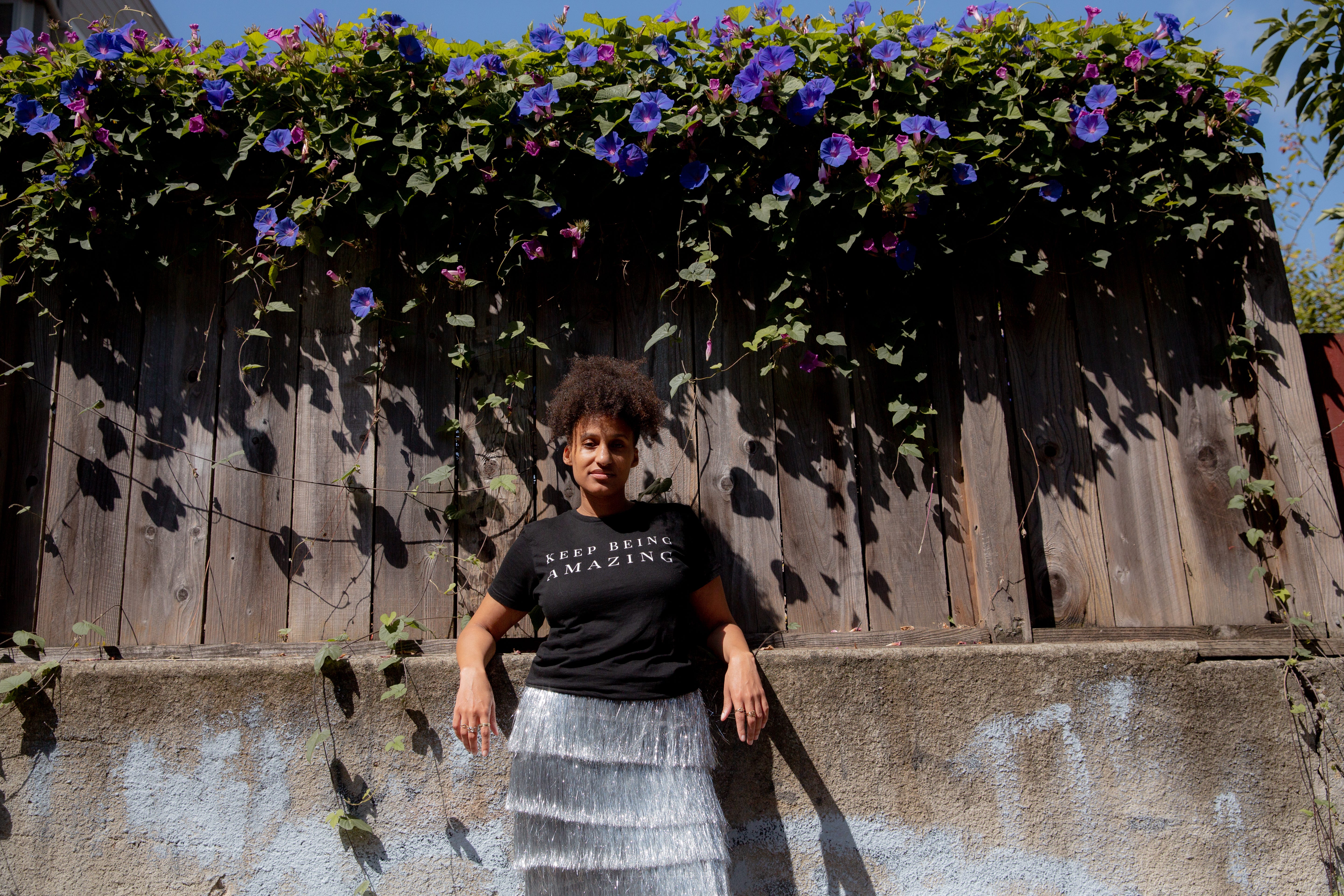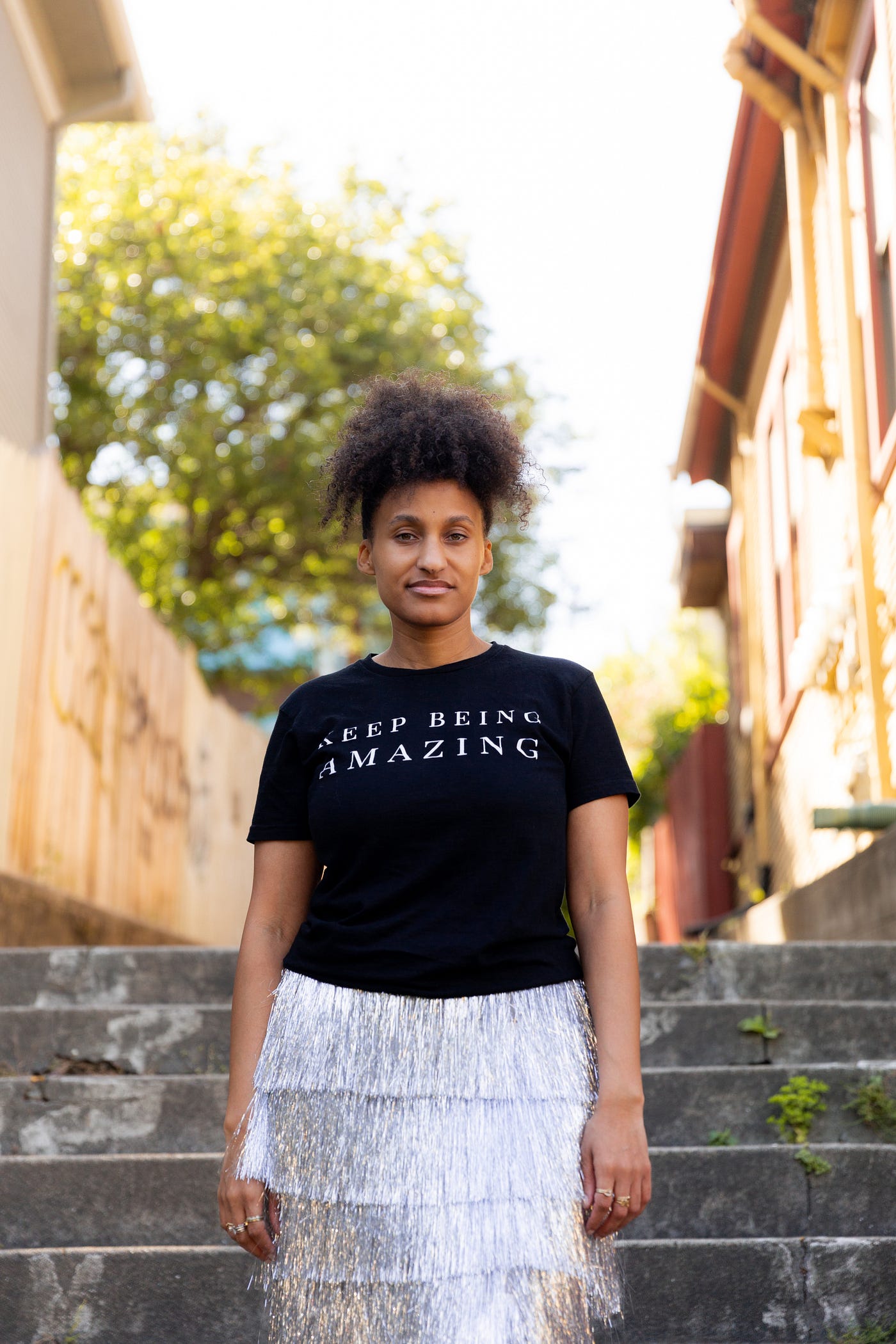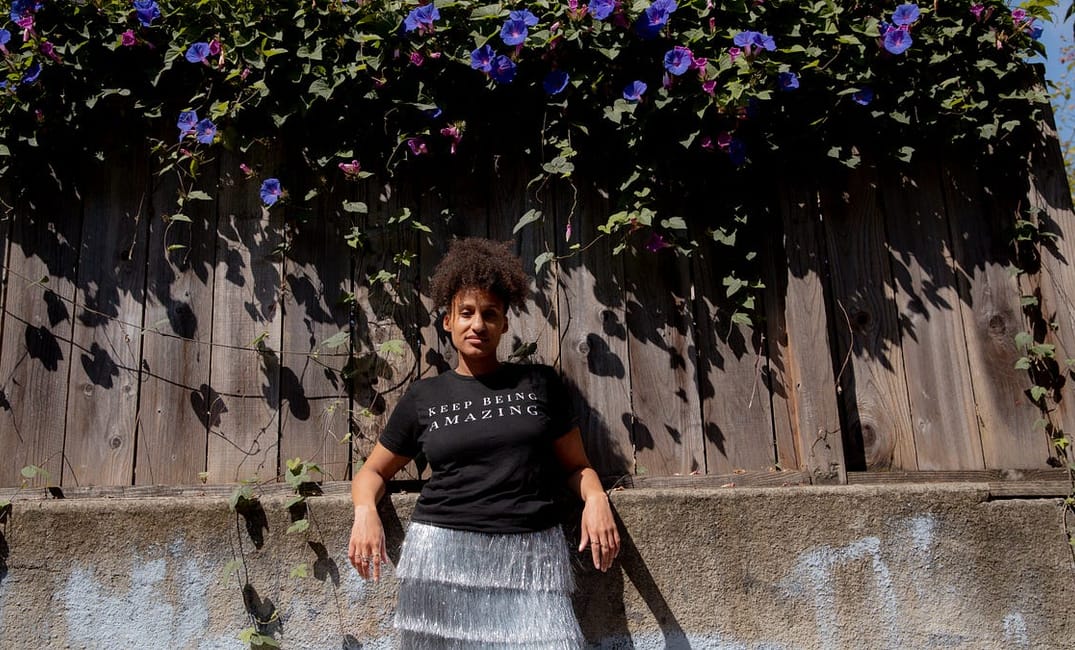Bold Bay Areans

Bold Bay Areans is a series from TBI featuring locals living boldly whom you should know about. If you would like to nominate someone, send us an email or DM us on Twitter or Instagram.
“The Olivia Pope of Diversity.” That’s what Akilah Cadet, DHSc, MPH, calls herself. Based in Oakland, Cadet is an outspoken community leader and activist who, through her company, Change Cadet, advises companies and CEOs on navigating and implementing social justice, creating diverse teams, and responding to news around racism in an appropriate way.
“I’m a proud Oakland resident,” Cadet says. “It was also important for me to open my business in Oakland due to the rich history of advocacy for Black people.”
This past summer, Cadet’s equity, diversity, and inclusion consultant work has been in high demand as companies try to figure out how to operate in a way that bodes well for their consumers and employees. (Hint: Performative allyship is a big no-no, and so is issuing fancy statements in the media but not taking care of POC employees.) Among her clients are Google, Lululemon, and The Wing. After seeing the tight 2020 election results, we are reminded again that the United States — surprise — is still very racist.
Sign up for The Bold Italic newsletter to get the best of the Bay Area in your inbox every week.
When Cadet, who has a PhD in health sciences, isn’t working with corporations, she’s busy with projects that elevate and aid people of color. Just in the past two months, she has partnered with The Nudge—an app that acts like a friend, nudging subscribers to exercise, make plans, and more—to create the Ally Nudge, a monthlong text-based service that nudges you to actively ally with the Black community; donated to causes supporting the Black community; and emailed CEOs of brands to ask about their diversity policies. For Covet Fashion, a mobile styling game, Cadet initiated a financial grant for BIPOC stylists, designers, and other fashion and makeup creatives. Grant recipients will have the opportunity to be featured on the popular platform. She’s also on the executive team of Represent Collaborative, a new local storytelling collaborative that covers issues of racial and social justice.
We caught up with Cadet to see what it’s been like to navigate her profession in such a heightened time, what she thinks about San Francisco companies’ work on racial justice, and the future of brands and white privilege. Prepare to take notes.
The Bold Italic: Your services are desperately needed right now. How do you describe what you do?
Akilah Cadet:
I dismantle white supremacy. I do this for Fortune 500 companies, global brands, foundations, and nonprofits. I also educate the public on ways in which they can also dismantle white supremacy. One key step is understanding privilege — it’s a misconception that only white people have it. Once you identify the privilege, you can determine the power that comes from it and understand how your actions in work and life can be adding to the oppression of other groups.
Why do brands and organizations need a diversity consultant, especially now?
Due to the murder of George Floyd and other Black people killed by police officers, many people are reflecting on how they can do better. These people often work at companies and realize the privilege a company or brand has to no longer add to systemic and institutional racism and oppression. Although there are many companies in a reactive state, overall companies want to be proactive and learn how to better support their BIPOC employees and allies.

How would you rate the Bay Area corporate world in terms of diversity and inclusion?
The Bay Area is very privileged. Regardless of the person’s ethnicity, there are people here who have an excess amount of wealth. Overall, I would give the Bay Area a four out of 10, given lots of performative allyship, such as posting on social media but not actually supporting Black businesses, despite the well-intended attempts to diversify either their workforce or funding portfolio. I have to add that Bay Area companies are queens and kings of microaggressions — there’s a lot of white centering, people bring the conversation back to themselves. On a personal level, if I tell people not to touch my hair, they can say, “I’m not racist,” or, “I touched my other Black friends’ hair.” Or people can tell you, “You’re such an articulate speaker,” which is coded language.
What inspired you to start Change Cadet in 2015?
All my life, I’ve been told I’m too smart, not smart enough, not Black enough, too educated, not educated enough — these barriers have prevented me from being my best self. A supervisor once said to me, “I didn’t think you were so smart when I interviewed you, but you are smart,” and after I told him I’ll have to rebuild my trust with him, he fired me. I was reflecting on my career, and I could see more and more patterns of misogyny and discrimination, so I decided to take a chance on myself, asking: How can people not feel the way that I’ve felt? It’s going to be six years in January.
Tell us about The Nudge and Covet Fashion. Why is being involved in startups important?
It is important to partner with companies that have influence, as it provides endless opportunities for awareness and education. With the Ally Nudge, the co-founders and I created a way of accessible learning for allyship. With Covet Fashion, it was a way to provide more opportunities to BIPOC in the fashion industry. Their social media channels have over a million people, and the work that we are doing amplifies up-and-coming designers, stylists, photographers, and more.
Do you ever relax and zone out? What are your favorite ways to do that?
Being a Black woman in America, it can be challenging to unwind and disconnect. We hold a lot, from educating and dealing with microaggressions to racism and constantly being retraumatized by the news. That’s why I take time with my platform to continually remind people that joy is also an act of resistance. I reconnect to my joy by celebrating the little wins every day. Pre-Covid, I loved to brunch at my favorite spots, like Brown Sugar Kitchen and Luka’s Taproom. I also love to cook, and it’s a therapeutic process for me. Walking around Lake Merritt used to be nice, and I love Montara State Beach, past Pacifica—once you pass Taco Bell, the water is teal blue, and you feel like you’ve escaped.







